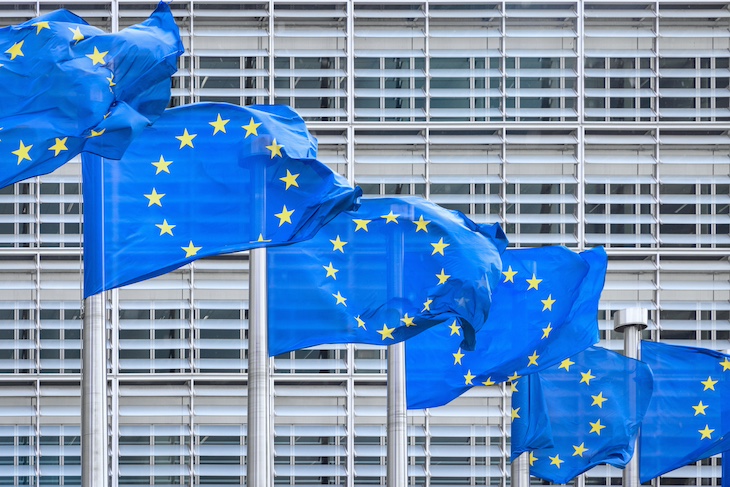Apple must pay €13 billion (£11 billion) in unpaid taxes, the European Court of Justice (ECJ) has ruled, bringing to an end a long-running dispute involving the tech company and the government of Ireland. The ruling by the EU’s top court is a huge win for the European Commission (and the outgoing Competition Commissioner Margrethe Vestager) against aggressive tax planning by large multinational companies. It is a major blow to the Irish government.
Following the publication of the judgment, the Irish government seemed positively disappointed
The case has a long and convoluted history. In 2016, the Commission determined that subsidiary companies belonging to the Apple Group had, historically, received tax advantages that constituted state aid from Ireland.
The Commission estimated that Ireland had given illegal tax benefits worth €13 billion to Apple. It therefore ordered Ireland to recover this money.
This decision generated outrage from Apple (CEO Tim Cook described it as ‘total political crap’) and the (then) US President, Donald Trump, who called Vestager, who led the campaign to clamp down on sweetheart tax deals, a ‘tax lady’ who ‘really hates the US.’
Apple won the initial court showdown. Following a hearing in 2020, the European Union’s General Court found that the Commission had not sufficiently established that the Apple companies enjoyed what the General Court described as ‘a selective advantage.’
In November 2023, Advocate General Pitruzzella (a legal adviser to the ECJ) issued a (non-binding) opinion that the General Court had committed ‘a series of errors in law’ in its ruling and proposed that the ECJ should set aside its judgment. However, instead of simply setting aside the original judgment, the General Court’s decision has now been conclusively reversed by the ECJ.
In short, the result is that Apple’s tax arrangements in Ireland have been found to amount to the receipt of unlawful state aid and Ireland will now be required to recover the €13 billion from the tech giant. The ruling by the ECJ cannot be appealed. This outcome appears to have come as somewhat of a surprise to some EU commentators, who had simply expected the ECJ to send the case back to the General Court for a redetermination.
Tax expert Dan Neidle has observed that the judgment ‘reads like a video recorder instruction manual from 1985’ and, as a result, experts will be poring over the fine print to determine the full repercussions. These could be significant.
Politico Europe has noted that the Commission’s Apple case was ‘part of a slew of probes aimed at how countries like Ireland and Luxembourg offered favourable tax treatment to hook the European headquarters of multinational firms.’ Notably, the Duchy of Luxembourg made an intervention in the case, arguing that the ECJ should dismiss the Commission’s appeal. (Coincidentally, Amazon’s European business is headquartered in Luxembourg).
Today’s judgment will now provoke a number of questions around the tax treatment of multinational companies and could have implications about the way they allocate profits between different countries. The legal academic professor Colin Murray described today’s judgment as ‘an acknowledgement that big companies should be paying tax’ and argued that it was the ‘right decision’. He suggested that the earlier ruling, from the General Court, had ‘come close to encouraging complex tax avoidance arrangements’.
Apple has responded to the judgment by claiming that the European Commission ‘is trying to retroactively change the rules and ignore that, as required by international tax law, our income was already subject to taxes in the US.’ It will nonetheless pay the money, which is currently held in escrow.
In addition to the impact the judgment may have on some multinational companies, it will also affect Ireland.
While the government of Ireland should have few complaints about receiving €13 billion, the knock-on effect on Ireland’s economy and reputation is rather less clear-cut. The BBC has noted that the Irish government previously argued that Apple should not have to repay the back taxes, ‘deeming that its loss was worth it to make the country an attractive home for large companies.’
Following the publication of the judgment, the Irish government seemed positively disappointed. Rather than welcoming the outcome, it said that:
‘The CJEU has found that the tax paid was insufficient and that a greater amount of taxation was required to be recovered. Ireland will of course respect the findings of the Court regarding the tax due in this case.’
The Irish government also stated that the case was ‘of historical relevance only’ since Ireland had introduced ‘changes to the law regarding corporate residence rules and the attribution of profits to branches of non-resident companies operating in the State.’
Others have not been so sanguine about the result. Peter Vale, a partner at Grant Thornton in Ireland, suggested that the judgment was a ‘blow to Ireland’ and fuelled those who ‘accuse Ireland of having a tax haven status.’ On that basis he argued that ‘there is no question that Ireland’s reputation suffered’ as a result of the case.
While the ECJ’s final determination may have come as a surprise to some (including Vestager herself) you do not need to be a radical to conclude that giant tech companies should not be able to rely on complex loopholes and profit shifting to avoid paying the tax that they owe.
Whatever the consequences in Ireland, the ECJ’s judgment should arguably be welcomed by anyone who believes that large multinational companies should be held to the same sort of standards as everyone else.






Comments